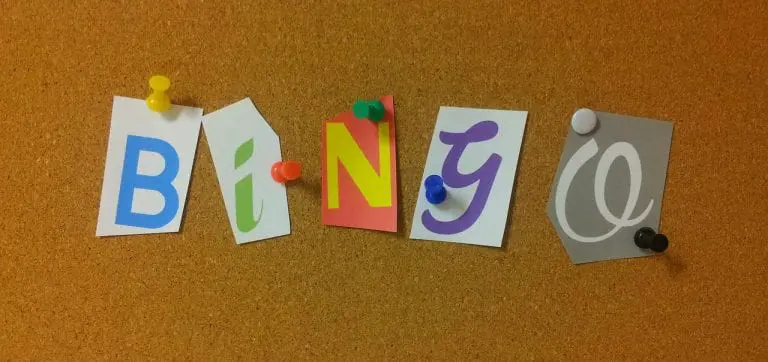9 Fun And Creative Ways To Build Math Confidence In Your Kids

Some studies indicate a significant percentage of elementary and middle school students experience math anxiety. Building confidence early is vital to overcoming this common struggle. Unlocking critical thinking skills through math also benefits children far beyond the classroom.
Discover new strategies to inspire your kids, whether you’re a parent tackling homework battles, an educator seeking fresh approaches, or an advocate for math literacy. This article provides nine playful techniques to make math enjoyable for children.
Understanding Math Anxiety
Many children freeze up when facing intimidating worksheets full of numbers. However, don’t insist they power through, as it tends to backfire. Instead, turn drills into inviting activities, like introducing math coloring pages. Using colorful materials such as rainbow grids can make math exercises more engaging for some children, potentially aiding in relaxation and retention.
The myth is some kids inherently excel at math. Actually, the right conditions let all children succeed. Developing versatile skills like problem-solving, spatial reasoning, and pattern recognition carries benefits far beyond formulas. Building math confidence takes patient, creative approaches.
Playful Exploration (Ages 3-7)
- Sensory and Hands-On Activities
Everyday activities like sorting laundry or counting cars on the street demonstrate numbers in action. Set aside five minutes during mundane tasks to ask interactive math questions. For example, how many red shirts are in the pile? If two more cars pass by, how many total did we count?
This activity subtly reduces your child’s apprehension towards challenging math questions encountered in school. They could grow more confident in answering. It also helps improve their listening skills, which is essential even in math.
- Interactive Games and Apps
Simple games like number matching, counting beads onto strings, or puzzles give repetition without the toil. These activities can be a less intimidating way for some children to engage with basic arithmetic concepts. The kids won’t realize they’re already learning basic arithmetic while trying to finish the game! Remember to praise their effort and small wins, like completing a 10-piece puzzle.
- Creative Math Storytelling
Weaving math into dramatic playtime has some interesting results. Why not add new, numbered characters in bedtime stories? For instance, “Once upon a time, the number 8 went to a party with his friend 5. How many guests were there in total?”
Numbers as characters turn fantastical scenarios into learning opportunities. Let their imagination roam and brain work as you narrate these tales.
Building Confidence Through Challenges (Ages 8-12)
- Math Board Games
Classic board games are low-pressure math skill builders that offer multiple benefits to learning. Young players learn to calculate money and the concept of space and probability.
Offer gentle guidance adding up Monopoly assets or maximizing point totals in Yahtzee. The better they get at math, the higher the possibility of them winning these board games.
- Baking and Cooking
Cooking provides engaging hands-on fractions practice. Ask them to double the ingredients from a cookie recipe or figure out measurements.
Children learn basic life skills and improve their mathematical capabilities simultaneously. Watching their tasty creations come out of the oven is also a sweet incentive to keep at it!
- Treasure Hunts and Math-Themed Escape Rooms
Scavenger hunts and escape rooms with math riddles add adventure to learning. Work together to decode maps, crack codes, and unravel puzzles rooted in math concepts. Whether you make it to the end in time or it takes a long while, celebrate figuring out the puzzles as a team.
Creative Expression and Project-Based Learning (Ages 13+)
- Design and Build Geometric Structures
Challenge your teen to design and construct model bridges, kites, or even mini golf courses using angles and estimation skills. Have them draw up blueprints first to plan dimensions and visually represent shapes. Then, provide the craft supplies like popsicle sticks, clay, and fabric to bring their creations to life. Display their finished projects proudly and have your teen explain the geometric principles used.
- Create Math Art Projects
Math art like tessellations or fractal geometric patterns can foster imagination and logic in children. Ask what math principles they discover while experimenting with shapes and ratios in their artistic designs. Then, supply graph paper, rulers, compasses, and protractors, and encourage them to map out intricate designs before coloring them in.
- Organize a Community Math Event
A neighborhood bake sale, lemonade stand, or math competition organized by your child could instill a respect for math. Calculating profits, planning the event, and attracting customers requires practical life math skills. Put up flyers to promote the event, have them practice their sales pitch, and set up a station with pencils and clipboards for any math games.
Tips For Fostering A Positive Math Environment
Making math inviting begins with slight shifts in mindset and methods. Focus on effort over outcomes. Praise willingness to try without overemphasizing correctness. Blend math into everyday moments and allow children to discover patterns naturally. Don’t leave yourself out of it, either. Join your child in playing games together to share in unlocking solutions collaboratively.
Always compare progress to their own baseline rather than peers. Mistakes can happen, so allow these to clarify concepts and reveal gaps. Patience and creativity are essential to nurturing confidence, especially when your child is struggling in school.
Make Math More Fun
By sprinkling math into everyday moments, having patience in the face of frustration, and tapping into creativity, children can build the confidence to not only survive but thrive with numbers. Approaching math as an adventure rather than a chore illuminates its value.









